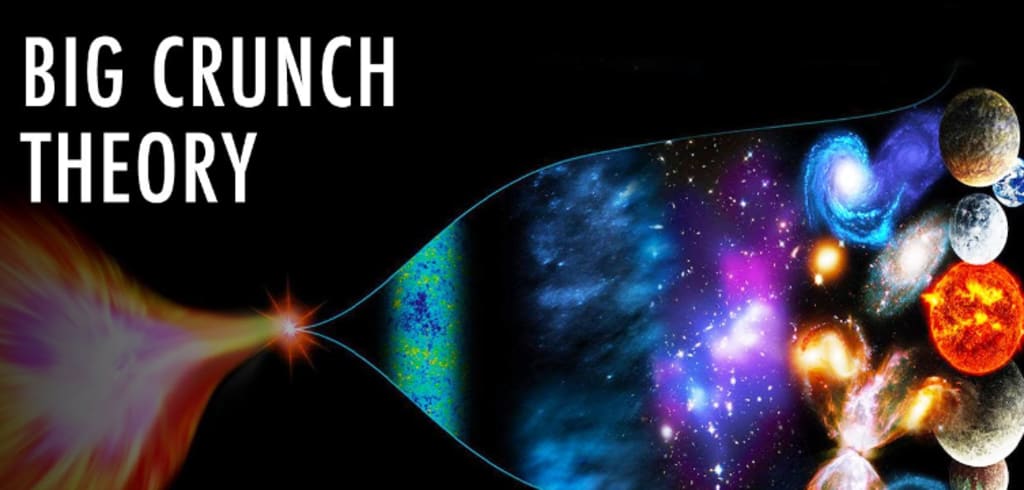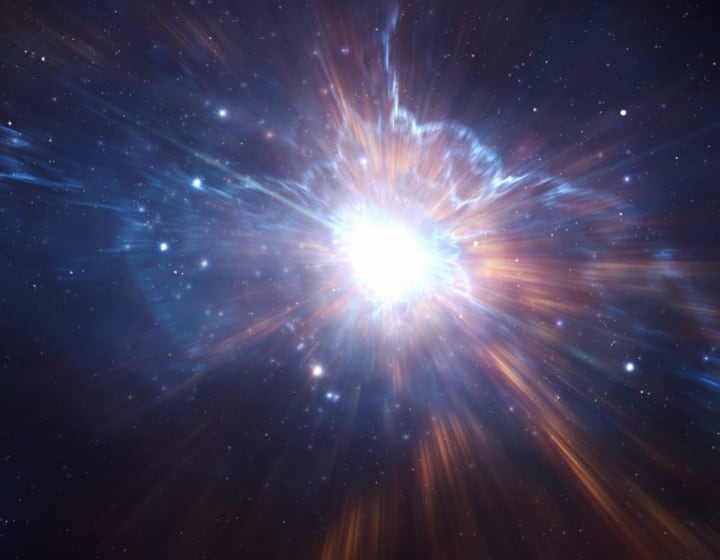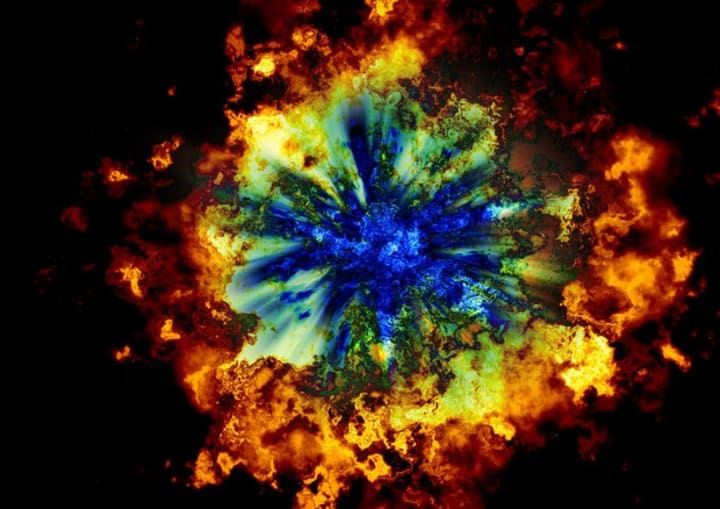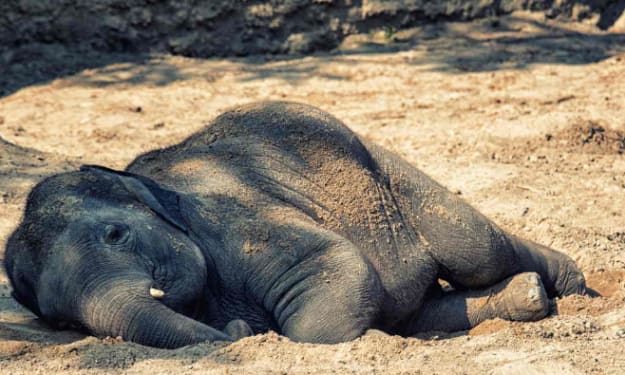How Will Our Universe End? Big Crunch Theory
The crazy theory behind the Big Bang

We've all heard about the big bang, and I'm really sad that the series has ended. Well, here, of course, I'm talking about the Big Bang that actually started everything. Most people have heard of that, but what do you know about the Big Crunch? And no, I'm not talking about some random candy bar.
While most scientists believe that our universe began with a massive burst of energy, opinions remain divided about how everything will one day come to an end. There's a range of theories, such as the Big Freeze and the Big Rip, but the one that's considered to be the most likely scenario is the Big Crunch.
So, what is the Big Crunch? The Big Crunch Theory has its roots in Einstein's theory of general relativity. Everything in life follows an ebb and flow: when one event occurs, the reverse is likely to occur after hitting the extreme. If the Big Bang causes the expansion of the universe, then eventually the opposite will become true. Once the universe has reached its largest size, as determined by the amount of energy present, it will begin to collapse in on itself and, in the end, form a massive black hole containing all matter.

Due to the conditions present in the singularity of this size, everything will be squashed down to a minuscule size, which is why it's called the Big Crunch. So probably not great news for all those of you who are class or for bacon and tend to live billions of years. Well, here's the good news.
While the math suggests that the Big Crunch is possible and even probable, there's a problem for those who dedicate their careers to understanding questions like this. We don't yet fully comprehend everything in the universe, and there are a couple of unknowns that will affect our ultimate fate.
First, the universe's expansion appears to be influenced by two factors: density and outward momentum. Density has a direct correlation to the amount of gravity present. So, the denser the universe is, the more gravitational forces take place. This, on its own, would mean that everything will eventually gravitate towards everything else, and the final Big Crunch becomes an inevitability.
However, observations of the universe have shown that things aren't behaving as simply as we would expect. The outer reaches appear to be expanding at a faster rate than those closer to us, and galaxies are actually moving further apart from each other. Scientists don't know why this is happening, but they have given a name to this unknown entity: dark energy.
This extra element in the expansion of the universe means that there are two potential outcomes. It will either continue to expand forever, and objects will be so far apart from each other that everything will freeze, or we could still face a Big Crunch. The determining factor is how much dark energy is actually there. If there is enough, which some scientists believe could be the case, then everything will continue to expand. If there isn't enough, though, then the forces of gravity will once more eventually overcome and bring everything back together again.

Some believe the seeming prevalence of dark energy could well signal the beginning of the Big Crunch. However, in a report released in 2015, it was suggested that the current increased rates of expansion are the last gasp of the expanding universe, and that within tens of billions of years, the contraction will begin.
So, how would the Big Crunch happen? If we assume that there isn't enough dark energy, and the Big Crunch does take place, then it won't be as spectacular as the Big Bang was. The universe will begin to contract evenly because matter is more or less distributed consistently. It would be a slow process, gradually picking up speed as galaxies got closer to one another, and the forces of gravity have more of an effect.
In about a hundred billion years from now, as things reach a climax, temperatures would significantly increase, and this will result in stars exploding and vaporizing. All objects will be broken down into their constituent atoms, which themselves will begin to break apart. In the final stages, as all matter from the universe compacts into a small space, things will become extremely chaotic. So much so that some predictions suggest space-time will become so warped that it would shatter into droplets, meaning all concepts of time, distance, and direction would become meaningless.
Of course, no living organism would have been able to survive to this point, and we would have all been doomed a long time before this. So, with our lack of full understanding of the processes taking place in the universe, it's impossible to know for sure how everything will end. One of the scenarios is the Big Crunch, which will see every piece of matter returning to where it originated, and all that will remain will be an unimaginably large black hole. What happens at that point really is anyone's guess, and it could potentially see the birth of a new universe. It's also possible that this has all happened a number of times already, and we're alive in just another in a long line of cyclical expansions and contractions. Again, only those of you who are planning to be alive for billions of years will really have to worry about this.
About the Creator
DailyDiscovery
DailyDiscovery is your window into the world of news and trivia. We will take you on an exciting journey of discovery and wonder. Join us and be fascinated by knowledge and learning! 🌍✨ 🔎





Comments
There are no comments for this story
Be the first to respond and start the conversation.